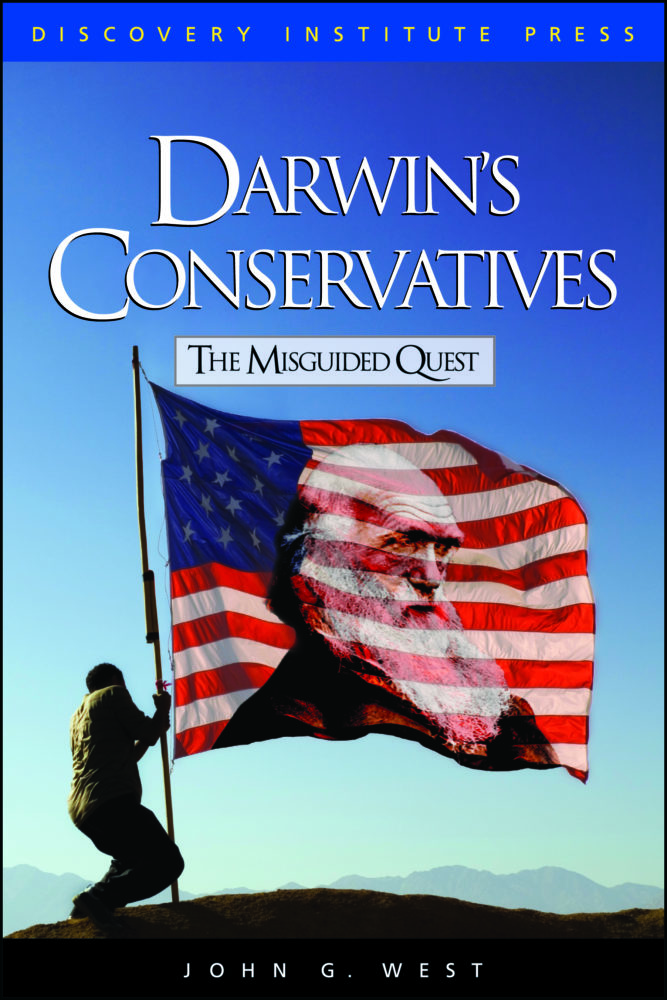Darwin’s Conservatives
The Misguided QuestThe debate over evolution is usually framed by the media as a political fight of left versus right. But a small cadre of conservative commentators and scholars, such as George Will, Charles Krauthammer, John Derbyshire, and Larry Arnhart, have become defenders of Darwinism. Darwin’s Conservatives: The Misguided Quest asks whether conservatives-traditionally known as the champions of personal responsibility, family values, theism, and limited government-are wise to embrace Darwin. In this short but compelling book, John West, political scientist and Discovery Institute’s Vice President for Public Policy and Legal Affairs, gives many reasons why conservatives should think twice before promoting Darwinism.

Conservatives often assert that there are natural laws which govern right and wrong. Yet under Darwinism, there are no irreducible moral laws given to humanity, and Darwinian evolution implies a kind of moral relativism. According to Dr. West’s research, this moral relativism is seen in the case of family values, where Darwinian relativism can be invoked to support polygamy just as easily as it can monogamy. Darwin himself wrote that “primeval man aboriginally lived….with as many wives as he could support and obtain,” and many Darwinists assert that all morality is simply the product of genetic and cultural co-evolution-not some objective law. Conservatives who defend human free will as the foundation of law and personal responsibility will find few friends among leading Darwinists who contend that human behavior is controlled by our genes that were naturally selected for survival and reproduction. Darwin’s Conservatives concludes that conservatives will find scant support for their values in Darwinism.
In economics and government, some conservatives have invoked Darwin to support capitalism, but readers will learn that those on the left (such as Karl Marx) have used Darwin as a scientific justification for class struggles and socialist revolutions. Darwinian conservative Larry Arnhart defends Darwinism by arguing that the complexity of our economic system demonstrates how natural selection creates progress through competition, without requiring an overarching designer. John West finds this analogy is flawed because businesses are composed of intelligent agents, and such types of complexity are “not a demonstration of the Darwinian mechanism of chance and necessity” but rather are “a demonstration of the power of intelligent causes working together” (pg. 47).
The case for Darwinian conservatism completely falls apart when we examine what Darwin has to say about religion. West documents how many leading evolutionist scientists have interpreted Darwinism in a fashion which is staunchly inimical to traditional Western forms of theism that are popular among conservatives.
Conservatives who pledge allegiance to Darwin claim that proponents of intelligent design threaten to break up a “conservative coalition.” The extensive documentation in this book shows that it is Darwin who threatens conservative ideals. After examining the evidence in Darwin’s Conservatives, those who defend good science and conservative politics will understand that conservatives who champion Darwin are mistaken.
